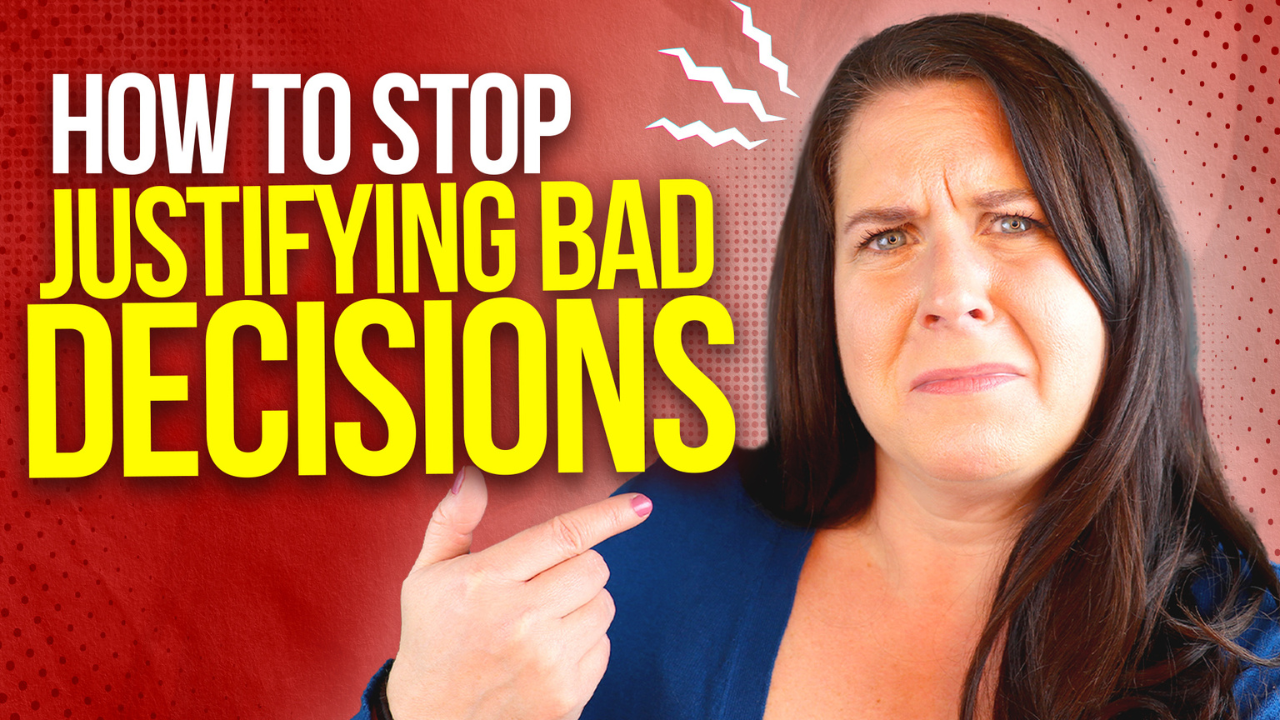Confronting The Lies We Tell Ourselves
Calling BS on Ourselves: A Guide to Self-Honesty
It's a skill we all need, especially if you possess the superpower of rationalization. You see, rationalizing can be a double-edged sword. It allows us to see things from multiple angles, which is fantastic when counseling others. However, it can lead us into trouble when we fail to recognize our own dishonesty.
Before we explore a list of questions to help you stay honest with yourself, let me share a rather embarrassing story about a costly mistake I made a couple of years ago.
My Costly Mistake
A few years ago, shortly after the COVID pandemic, our online services had taken off. Around 80% of our client sessions were now virtual. We found ourselves in a massive office building designed for our Intensive Outpatient Program (IOP), with far more space than we needed. Fortunately, we had an open conversation with our landlord about downsizing. He agreed to help us find someone interested in the extra space.
To our delight, he soon found a taker, and we thought we were off the hook for paying rent on space we no longer used. It was time to downsize, and we set our sights on finding a smaller, more homey office space. However, we struggled to find the ideal location, and that's when my rationalizing superpower kicked in.
I thought, "Why not lease a house in a neighborhood? We don't have many clients visiting the office anyway." So, we found a suitable house, signed the lease, and moved in. But just three days later, we received an unwelcome knock on the door, and we were told to vacate the premises within a week. That little rationalization cost me about $20,000, not to mention the hassle of moving twice and repainting. It's a mistake I still cringe about.
The Importance of Self-Honesty
My experience highlights how easily we can deceive ourselves. To help you avoid making a $20,000 mistake, let's explore some questions that can keep you on track:
-
Is this the right thing to do? Really? Adding "really" forces you to step back and view the situation objectively, helping you be more honest with yourself.
-
Am I making this decision out of fear? Decisions driven by fear are often misguided. Are you trying to avoid a tough conversation or responsibility?
-
Am I protecting someone else's feelings or my own? Be aware of decisions made to shield feelings, as they can cloud your judgment.
-
Am I rationalizing based on emotions? Justifying actions due to strong emotions is a sign of rationalization. Emotions should not dictate your choices.
-
Am I being honest with myself about my decisions and behaviors? Regular self-checks ensure you're not deceiving yourself.
Addiction can be deceitful, leading you down the wrong path before you realize it. Honesty with yourself is a critical key to maintaining sobriety and personal growth. Remember, it's best to call yourself out on your own BS whenever possible. And if you need an additional tool, download the free integrity checklist provided in the video description.
In our daily lives, we often struggle with accepting criticism from others. However, having people who can gently call us out or make us see uncomfortable truths without triggering defensiveness can be incredibly valuable. In the journey towards self-improvement and recovery, learning to be brutally honest with ourselves is a skill worth cultivating. Stay tuned for more recovery skills in upcoming videos.
Amber Hollingsworth
Navigating the Path to Recovery: Do You Have to Keep Going Forever?
ADDITIONAL RESOURCES:


